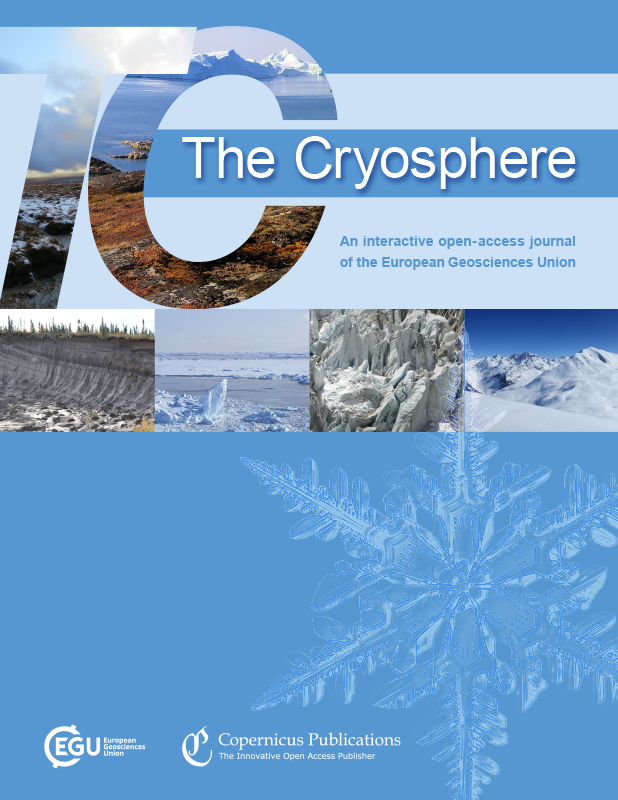Relevance of warm air intrusions for Arctic satellite sea ice concentration time series
IF 4.2
2区 地球科学
Q1 GEOGRAPHY, PHYSICAL
引用次数: 1
Abstract
Abstract. Winter warm air intrusions entering the Arctic region can strongly modify the microwave emission of the snow-covered sea ice system due to temperature-induced snow metamorphism and ice crust formations, e.g., after melt–refreeze events. Common microwave radiometer satellite sea ice concentration retrievals are based on empirical models using the snow-covered sea ice emissivity and thus can be influenced by strong warm air intrusions. Here, we carry out a long-term study analyzing 41 years of winter sea ice concentration observations from different algorithms to investigate the impact of warm air intrusions on the retrieved ice concentration. Our results show that three out of four algorithms underestimate the sea ice concentration during (and up to 10 d after) warm air intrusions which increase the 2 m air temperature (daily maximum) above − 5 ∘C. This can lead to sea ice area underestimations in the order of 104 to 105 km2. If the 2 m temperature during the warm air intrusions crosses − 2 ∘C, all algorithms are impacted. Our analysis shows that the strength of these strong warm air intrusions increased in recent years, especially in April. With a further climate change, such warm air intrusions are expected to occur more frequently and earlier in the season, and their influence on sea ice climate data records will become more important.暖空气入侵与北极卫星海冰浓度时间序列的相关性
摘要由于温度引起的雪变质作用和冰壳形成,例如在融化-再冻结事件之后,进入北极地区的冬季暖空气入侵会强烈改变被雪覆盖的海冰系统的微波发射。常见的微波辐射计卫星海冰浓度反演是基于使用积雪海冰发射率的经验模型,因此可能受到强暖空气入侵的影响。在这里,我们进行了一项长期研究,分析了41年来不同算法的冬季海冰浓度观测结果,以研究暖空气入侵对反演冰浓度的影响。我们的结果表明,四分之三的算法低估了10 d之后)暖空气入侵,增加2 m空气温度(每日最高值)高于− 5. ∘C.这可能导致海冰面积被低估104至105左右 平方公里。如果2 暖空气侵入期间的m温度穿过− 2. ∘C、 所有算法都会受到影响。我们的分析表明,这些强暖空气入侵的强度近年来有所增加,尤其是在4月份。随着气候的进一步变化,这种暖空气入侵预计会在本季更频繁、更早地发生,它们对海冰气候数据记录的影响将变得更加重要。
本文章由计算机程序翻译,如有差异,请以英文原文为准。
求助全文
约1分钟内获得全文
求助全文
来源期刊

Cryosphere
GEOGRAPHY, PHYSICAL-GEOSCIENCES, MULTIDISCIPLINARY
CiteScore
8.70
自引率
17.30%
发文量
240
审稿时长
4-8 weeks
期刊介绍:
The Cryosphere (TC) is a not-for-profit international scientific journal dedicated to the publication and discussion of research articles, short communications, and review papers on all aspects of frozen water and ground on Earth and on other planetary bodies.
The main subject areas are the following:
ice sheets and glaciers;
planetary ice bodies;
permafrost and seasonally frozen ground;
seasonal snow cover;
sea ice;
river and lake ice;
remote sensing, numerical modelling, in situ and laboratory studies of the above and including studies of the interaction of the cryosphere with the rest of the climate system.
 求助内容:
求助内容: 应助结果提醒方式:
应助结果提醒方式:


